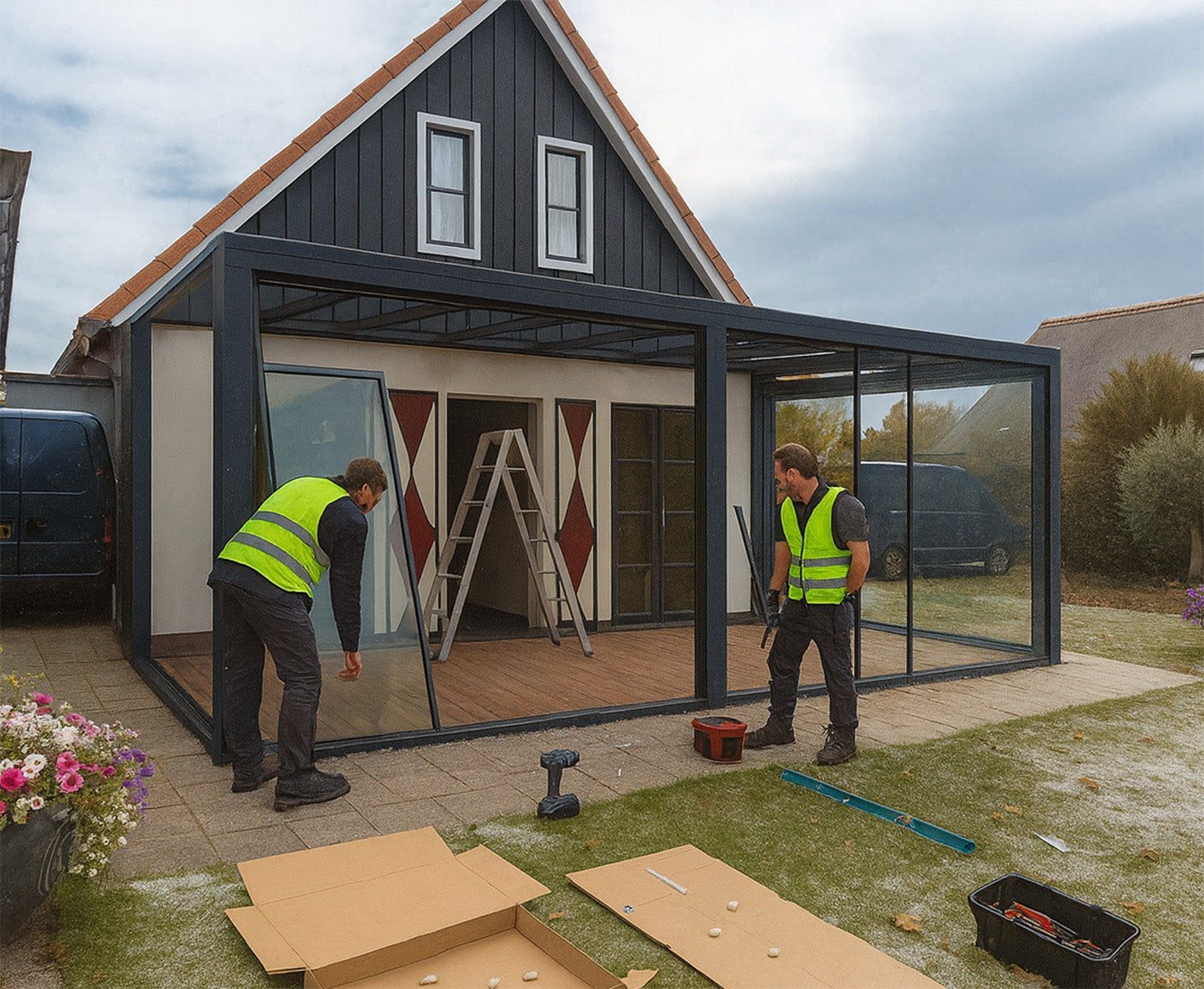Fixed canopies and verandas are one of the fastest-growing outdoor living solutions in the UK. Whether you want a glass roof veranda for the garden or a covered canopy for a hospitality space, these structures create year-round shelter and style.
At Outside Structures, we’re often asked two key questions:
👉 “Do I need planning permission for a fixed canopy or veranda?”
👉 “Which roof type is best for winter, glass or polycarbonate?”
This blog breaks down the rules and compares your roof options so you can plan your project with confidence.
Do Fixed Canopies and Verandas Need Planning Permission?
In some cases, fixed canopies may be installed under permitted development (PD) rights, but the rules are stricter than for a standard pergola.
· Verandas are generally excluded from PD: The Government’s guidance specifies that verandas, balconies, and raised platforms normally require permission.
· Outbuildings vs extensions: If your canopy is freestanding, councils may treat it as an “outbuilding” (permitted if under certain size limits). If attached to the house, it may be considered an extension, usually requiring consent.
· Conservation areas & listed buildings: In places such as London boroughs, Cambridge, or historic towns in Hertfordshire, additional restrictions apply.
👉 Always check with your local planning authority before installing a fixed canopy or veranda.
Glass Roofs vs Polycarbonate Roofs for Winter Use
Glass Roofs
Pros:
· Premium appearance and natural light.
· Better sound insulation, quieter in heavy rain.
· Long-lasting and easy to clean.
Cons:
· Heavier structure, may require stronger supports.
· More expensive to install.
· Can build condensation without ventilation.
Polycarbonate Roofs
Pros:
· Lightweight and affordable.
· Good impact resistance (e.g. hail).
· Available in clear or tinted finishes.
Cons:
· Louder in rain compared to glass.
· More prone to scratches and discolouration.
· Lower insulation can feel cooler in winter.
Snow Load & Weather Performance
Both glass and polycarbonate roofs must meet UK building standards for snow load. In the South East, snow isn’t usually extreme, but in exposed rural or coastal areas, a reinforced frame is essential for peace of mind.
Hospitality Applications
For pubs, cafés, and restaurants, a fixed canopy creates valuable covered seating that works with the new permanent pavement licence rules. Glass roofs give a premium, high-end look, while polycarbonate canopies offer a cost-effective way to maximise outdoor capacity through the winter months.
Outside Structures, Specialists in Canopies & Verandas
At Outside Structures, we design and install glass roof verandas and fixed canopies across London, Cambridgeshire, Hertfordshire, Essex, and the wider South East. We’ll help you:
· Understand whether planning permission is required.
· Choose between glass and polycarbonate based on your needs.
· Create outdoor spaces that are stylish, weatherproof, and built to last.
Conclusion
So, do fixed canopies and verandas need planning permission in England? In many cases, yes, especially if attached to the house or in a conservation area. And when it comes to winter use, glass offers insulation and luxury, while polycarbonate delivers affordability and practicality.
👉 Explore our fixed canopy and veranda solutions and let Outside Structures help you design the perfect all-weather space.
FAQs
Do I need planning permission for a glass veranda in England?
Yes, in most cases verandas require planning permission, especially when attached to the house.
Are polycarbonate canopies allowed under permitted development?
Freestanding polycarbonate canopies may be treated as outbuildings, but always check with your local authority.
Which is better in winter, glass or polycarbonate roofs?
Glass offers better insulation and is quieter in rain, while polycarbonate is more affordable and lighter.
Do fixed canopies add value to a property?
Yes, professionally installed verandas and canopies often increase property appeal and usability.

